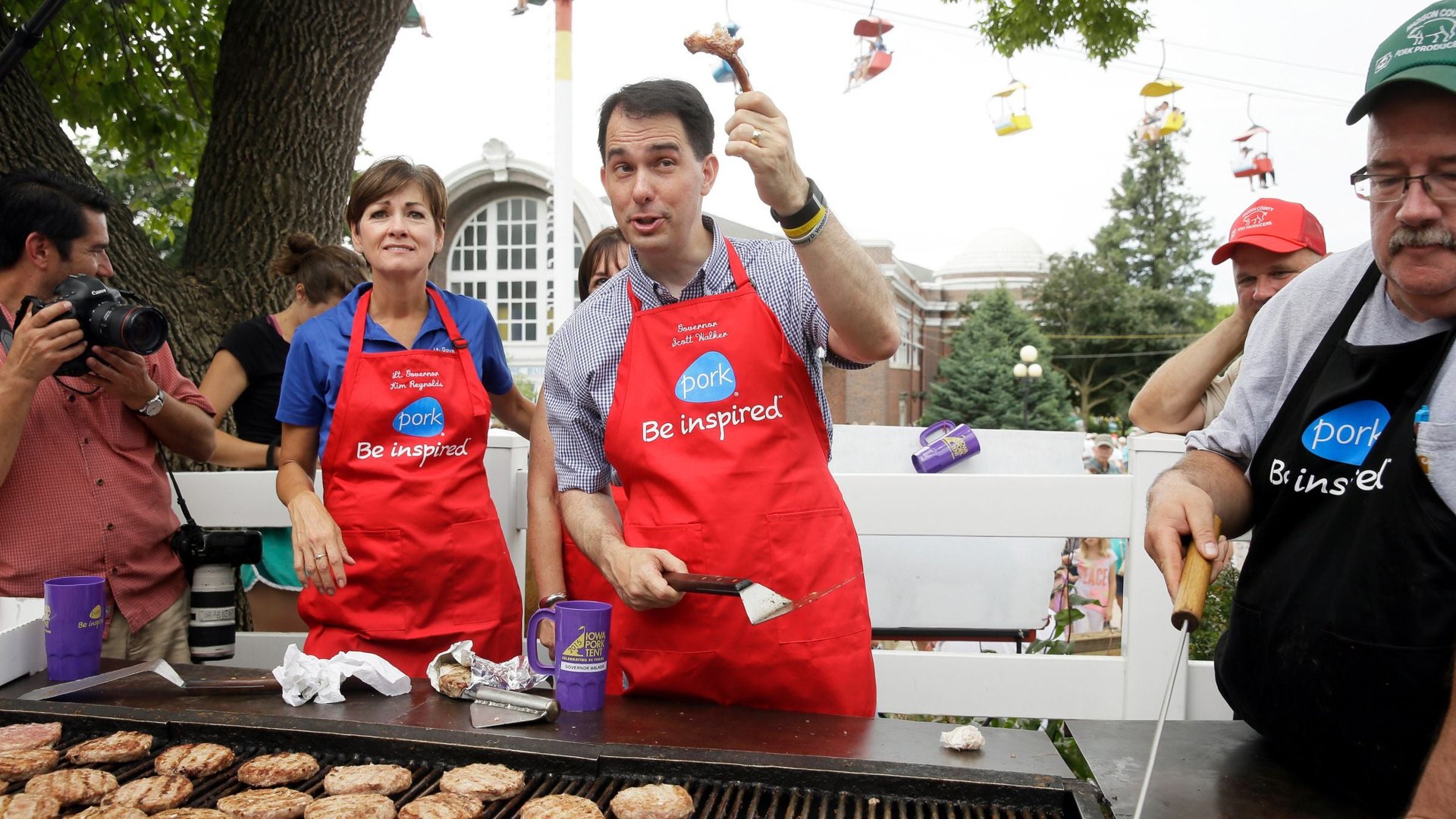In the age of the $10 billion election, US presidential campaigns are running out of dough
Texas governor Rick Perry’s campaign chairman in Iowa quit this week in search of a more solvent contender when his salary wasn’t paid. Sure enough, the Republican front-runner, bombastic billionaire Donald Trump, snatched him up.


Texas governor Rick Perry’s campaign chairman in Iowa quit this week in search of a more solvent contender when his salary wasn’t paid. Sure enough, the Republican front-runner, bombastic billionaire Donald Trump, snatched him up.
Perry’s campaign doesn’t appear long for this world. But the staff of former Florida governor Jeb Bush, by many measures the most popular non-Trump Republican, are also taking pay cuts. And Democratic presidential front-runner Hillary Clinton has her advisers riding the bus instead of the train—or saying so, anyway.
Isn’t this the presidential election in which candidates will spend $10 billion? Where’s all the money?
The billionaires have it. Besides Trump’s deep pockets—he hasn’t even bothered to raise much money, the luxury of the self-funding candidate—the big money is going to so-called Super PACs, the nominally unaffiliated groups that can raise unlimited amounts and in practice cater directly to their chosen candidate’s whims. The discrepancy between direct and indirect spending even shows up in Uber use by campaign teams.
At this point in the race, all but one candidate lags behind the campaign fundraising benchmarks set by the two presidential nominees in the year before the last election:
Not everyone is shirking their fundraising duties: Clinton, a veteran in this game, has a healthy campaign balance, and Vermont senator Bernie Sanders, who is running against her, has surprised some observers by building a strong fundraising base from thousands of small donors.
This matters because, even though campaigns have found ways to skirt the rules barring coordination between campaigns and Super PACs, at this stage in the race an engaged and incentivized campaign team is crucial. While Super PACs can bring out the big guns at the end of the campaign—barrages of expensive TV ads, mailers, and paid canvassers going door-to-door to sway voters—at the beginning of a presidential run, most voters aren’t paying attention, and the ones who are like a personal touch.
That means being on the ground in primary states with a sufficient coterie of press and advance staff not to make a fool of yourself, like being grilled on sensitive subjects by an undercover celebrity without even noticing it. It also means hiring top economic and foreign policy advisers to brief you on the issues, so you can figure out your position on the war in Iraq. And it means buying lots and lots of pizza. All that can be hard to do without sufficient cash in the campaign committee you control directly.
But recent Supreme Court decisions have suddenly made it easier to fill your Super PAC with unlimited cash from a few friendly millionaires. Heck, 95% of funds in Texas senator Ted Cruz’s Super PAC have been deposited in chunks of $1 million or greater, the highest share of all the candidates. This largesse makes some campaigns slack off on more costly fundraising methods—soliciting small donors and deeper-pocketed supporters willing to bundle lots and lots of $5,400 checks to give directly to a candidate’s campaign.
There is no doubt that this trend increases the political influence of the wealthy—and the incentive for wealthy people to just run for office themselves. But it’s also changing the way that political campaigns behave, and that’s why we may soon see some candidates with millions of dollars behind their candidacy, but a broke campaign.